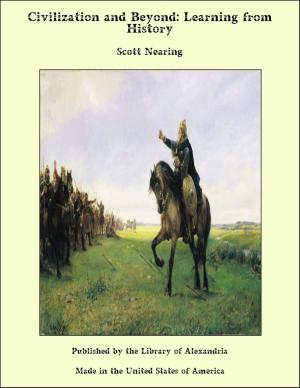Kings, Queens and Pawns: An American Woman at the Front
Nonfiction, Religion & Spirituality, New Age, History, Fiction & Literature| Author: | Mary Roberts Rinehart | ISBN: | 9781465560537 |
| Publisher: | Library of Alexandria | Publication: | July 29, 2009 |
| Imprint: | Library of Alexandria | Language: | English |
| Author: | Mary Roberts Rinehart |
| ISBN: | 9781465560537 |
| Publisher: | Library of Alexandria |
| Publication: | July 29, 2009 |
| Imprint: | Library of Alexandria |
| Language: | English |
FOR KING AND COUNTRY March in England is spring. Early in the month masses of snowdrops lined the paths in Hyde Park. The grass was green, the roads hard and dry under the eager feet of Kitchener's great army. For months they had been drilling, struggling with the intricacies of a new career, working and waiting. And now it was spring, and soon they would be off. Some had already gone. "Lucky beggars!" said the ones who remained, and counted the days. And waiting, they drilled. Everywhere there were squads: Scots in plaid kilts with khaki tunics; less picturesque but equally imposing regiments in the field uniform, with officers hardly distinguishable from their men. Everywhere the same grim but cheerful determination to get over and help the boys across the Channel to assist in holding that more than four hundred miles of battle line against the invading hosts of Germany. Here in Hyde Park that spring day was all the panoply of war: bands playing, the steady tramp of numberless feet, the muffled clatter of accoutrements, the homage of the waiting crowd. And they deserved homage, those fine, upstanding men, many of them hardly more than boys, marching along with a fine, full swing. There is something magnificent, a contagion of enthusiasm, in the sight of a great volunteer army. The North and the South knew the thrill during our own great war. Conscription may form a great and admirable machine, but it differs from the trained army of volunteers as a body differs from a soul. But it costs a country heavy in griefs, does a volunteer army; for the flower of the country goes. That, too, America knows, and England is learning
FOR KING AND COUNTRY March in England is spring. Early in the month masses of snowdrops lined the paths in Hyde Park. The grass was green, the roads hard and dry under the eager feet of Kitchener's great army. For months they had been drilling, struggling with the intricacies of a new career, working and waiting. And now it was spring, and soon they would be off. Some had already gone. "Lucky beggars!" said the ones who remained, and counted the days. And waiting, they drilled. Everywhere there were squads: Scots in plaid kilts with khaki tunics; less picturesque but equally imposing regiments in the field uniform, with officers hardly distinguishable from their men. Everywhere the same grim but cheerful determination to get over and help the boys across the Channel to assist in holding that more than four hundred miles of battle line against the invading hosts of Germany. Here in Hyde Park that spring day was all the panoply of war: bands playing, the steady tramp of numberless feet, the muffled clatter of accoutrements, the homage of the waiting crowd. And they deserved homage, those fine, upstanding men, many of them hardly more than boys, marching along with a fine, full swing. There is something magnificent, a contagion of enthusiasm, in the sight of a great volunteer army. The North and the South knew the thrill during our own great war. Conscription may form a great and admirable machine, but it differs from the trained army of volunteers as a body differs from a soul. But it costs a country heavy in griefs, does a volunteer army; for the flower of the country goes. That, too, America knows, and England is learning















